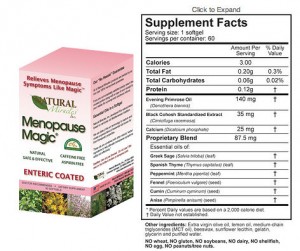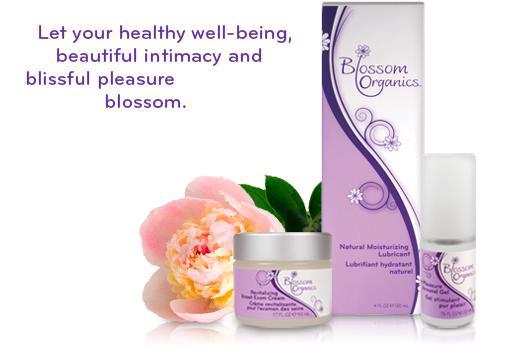Wednesday Bubble: Do you believe in magic?
If you believe in magic, come along with me…
-The Lovin Spoonful, 1965.
A lot has changed since the Lovin Spoonful released their Billboard Hot 100 hit ‘Do you believe in magic.’ And a lot has not changed. Just take a look around and you may see a 20 something year old hipster walking down the street in a fur vest, handlebar ‘stache and some rockin’ bottom bells, suede fringed bag, floppy ass hat or hotter than hot pants. And there are still miracles to be found in little white pills. Although today’s ‘little helper’ comes in the form of Menopause Magic.
Indeed, this ‘one size fits all’ tablet will cure all that ails, “relieve menopause symptoms just like magic!” Manufactured by Natural Miracles, Menopause Magic contains a natural blend of oils and herbs to relieve hot flashes, night sweats, backache, joint discomfort, low libido, vaginal dryness, forgetfulness, moodiness and abnormal menstrual periods. OMG! It MUST be magic! And, they even have laboratory studies to prove effectiveness!
Mind you, each pill contains black cohosh,which may help with those flashes, depending on the dosage and manufacturing practices. However, I have not seen much information on spanish thyme, greek sage or fennel or extra-virgin olive oil and menopause (truth be told, it has me thinking about my next meal!) But I digress.
Listen up ladies: there is no magic in menopause relief. It takes research, communication with a licensed, well-versed health practitioner and trial and error. Save your hard earned dollars on something other than these particular little white pills.
Sending love. In Spoonfuls.
Read More
Wednesday Bubble: Lub(e)-a dub dub
Vaginal atrophy — thinning and drying of the vaginal tissues as a result of declining estrogen levels– leads to itching, burning, dryness, irritation and pain. And while it certainly isn’t the silent scourge overtaking women globally, it does affect roughly 50% of menopausal women and often goes unrecognized and undiagnosed. More importantly, unlike hot flashes and night sweats, vaginal atrophy does not go away; rather, in some women, may may progress to cause years of discomfort, so much so that quality of life is significantly impacted. Indeed, data suggest that the proportion of women experiencing vaginal dryness increases five-fold as women advance through menopause.
Importantly, results of a recent global survey indicate that most women choose over-the-counter lubricants and are not even aware that a low-dose, relatively safe topical estrogen treatment is available. Still, for many, over-the-counter options are enough, such as Replens, which theoretically goes beyond instant relief and actually provides ongoing protection. However, what should you do if sexual intimacy continues to be uncomfortable, your vagina feels increasingly uncomfortable and hormones are an undesirable choice?
Isoflavones baby!
Yup, soon, you may be able to leave the over the counter and hormone therapy options behind for a safer, effective treatment. Reporting in the online version of Maturitas, researchers state that they have been exploring plant-like estrogens in a topical gel format can deliver benefits similar to topical estrogen gel without p0tential safety issues. And, when they blindly compared 12 weeks of a 1 gm isoflavone gel to topical Premarin or placebo gel in 90 menopausal women, that’s exactly what they found!
At the beginning of the study, 100% of women reported vaginal dryness and pain, 82% said that they had itching and 72% complained of vaginal discharge. In women receiving the isoflavone gel, as many as 70% reported that their dryness was intense and 60% said that their pain was intense. By the end of 12 weeks, improvements were seen in both vaginal dryness and vaginal pain; no women reported having intense symptoms and roughly half said that their symptoms were mild. Overall, roughly 97% of women using isoflavone gel saw improvements in both vaginal dryness and pain. Similar figures were observed in women using topical estrogen.
Now here’s the science geeky part. When the researchers took a closer look at the cells in the vaginal wall, they noted a shift towards values that one would see in a premenopausal woman. And, whereas topical vaginal hormone therapy sometimes results in vaginal bleeding and thickening of the lining of the uterus, these issues were not seen in women using the isoflavone gel (neither were they noted in women using topical estrogen, probably due to the extremely low dosage).
The researchers say that it appears that the isoflavone gel can be used safely without any risk of systemic absorption. Now? We need more studies so we can get this gel to market.
Read More
Wednesday Bubble: U.S. Preventive Services Task Force Recommends Against Use of Hormone Therapy for Chronic Disease Prevention
I just can’t help myself. It’s Monday. But this news item calls for a Wednesday Bubble. And yet another nail in the HRT coffin.
The U.S. Preventive Services Task Force (USPSTF) issued an update to its 2005 statement on hormonal therapy late this afternoon. It reads:
“The U.S. Preventive Services Task Force (USPSTF) recommends against the use of of combined estrogen and progestin for the prevention of chronic conditions in postmenopausal women” (evidence grade D – There is moderate or high certainty that the service has no net benefit or that the harms outweigh the benefits).
“The USPTF recommends against the use of of estrogen for the prevention of chronic conditions in postmenopausal women who have had a hysterectomy (D recommendation).
Wondering what this means?
The USPTF recommendations are clear that they refer to the use of HRT and hormone therapy for the purpose of reducing a woman’s risk of developing certain chronic diseases, such as heart disease or dementia and not for the purpose of treating considering hormone therapy for menopausal symptoms such as hot flashes or vaginal dryness/atrophy. However, they are also clear about the data that explores the use of hormone therapy for chronic diseases, noting that while combined HRT has been shown to decrease the risk for fractures, this decline is accompanied by an increase in the risk for serious events that include:
- stroke
- invasive breast cancer
- dementia
- gallbladder disease
- blood clots in the veins or lungs
Additionally, they report that data do not demonstrate a decrease in heart disease and even show an increased likelihood — 1.22 times the norm — for some type of heart event.
For estrogen alone, they again note the benefits in terms of fracture reductions and even a small decline in risk of developing or dying from invasive breast cancer (e.g. 8 fewer cases or 2 fewer deaths per 10,000 person years). However, estrogen-alone has also been associated with “important harms” including:
- stroke
- blood clots in the veins
- gallbladder disease
Like combined hormone therapy, estrogen alone does not reduce the risk for coronary heart disease.
The Task Force also points out that both forms of hormone therapy have been associated with an increased incidence of stress, mixed or urge urinary incontinence after one year.
Mind you, naysayers will say that the average age of women participating in the Women’s Health Initiative were a bit older than the vast majority of women who are transitioning through menopause. To a certain extent, the Task Force agrees, calling for “new research to help better define whether there is a differential balance of benefits and harms based on age at initiation, duration of use and dose or delivery mechanism. Still, they conclude with “high certainty that there is zero to negative net benefit for the use of combined estrogen and progestin therapy for the prevention of chronic conditions and concludes with moderate certainty that there is no net benefit for use of estrogen alone.” Moreover, major health organizations are aligned with the new recommendations. For example, the American Heart Association and American Congress of Obstetricians and Gynecologists recommend against using hormonal therapy to prevent heart disease. The Canadian Task Force on Preventive Health Care and American Academy of Family Physicians are totally aligned with the USPSTF in terms of the use of hormonal therapy to prevent chronic illness in postmenopausal women. Even the North American Menopause Society, a huge proponent of hormone therapy, does not believe that hormones should be used to protect the heart or prevent dementia.
Let’s place the recommendations in context.
By the time most women reach menopause, they are expected to live at least 30 additional years. During this time, they have varied risks for developing chronic diseases, ranging from 30% for coronary heart disease and 21% for stroke to 22% for dementia and 11% for breast cancer. In an accompanying press release, Associate Professor of Medicine and of Epidemiology and Biostatistics at the University of California, San Francisco , Dr. Kirstin Bibbins-Domingo, says “the Task Force recommends a number of important preventive measures women can take to prevent chronic diseases, including quitting smoking and identifying and treating high blood pressure and high cholesterol. There are also other effective ways that women can reduce their risk of bone fractures, such as weight-bearing exercise and being screened and treated, as appropriate for osteoporosis.”
In other words, speak to your practitioner about evidence-based strategies to maintain good health and prevent disease. In this case, the evidence for HRT in disease prevention efforts during menopause is scant and the risks appear to outweigh the benefits.
Read More
Newsflash: Estrogen only joins “avoid long-term hormone therapy use” recommendations
How many times does one need to get hit over the head before they have that “ah-ha” moment?
That’s pretty much the party line when it comes to hormone replacement therapy, or HRT. I’ve been writing about HRT since I started this blog. And I have been reading study after study that ultimately come to the same conclusion: long-term use of any hormones is unsafe.
I know that there are naysayers out there who don’t want to believe. Even the International Menopause Society continues to dispute the link between combined hormones and breast cancer. Yet, I wholeheartedly believe in free will and choice, informed decision-making needs to lead the way when it comes to your health.
And so, in the latest wrench to be thrown into the HRT argument, researchers from Brigham and Women’s Hospital in Boston, reporting from the annual American Association for Cancer Research meeting, that the longer that any hormone replacement is used, regardless of whether or not it is estrogen plus progesterone or estrogen alone, the higher the risk for developing breast cancer.
Did you read that?
Lead researcher Wendy Y Chen is quoted in the Association’s newsrelease as saying that while it’s “already been confirmed that patients shouldn’t be undergoing estrogen plus progesteron hormone therapy for the long term,” (you can read about that here), “what we found is that people should also be careful about longer-term use of estrogen-alone [hormone therapy].”
Chen and her team evaluated data collected during the Nurses Health Study over a period of 28 years. They found that of the 121,700 women who took part in the study who were between the ages of 30 and 55 in 1976, and used combined hormones for 10 to 14.9 years, had an 88% higher risk of developing breast cancer than women who did not use HRT. Moreover, this risk increased to more than two-fold in women using it up to almost 20 years. And although the risk was comparatively lower for women who used estrogen only, they still had an 22% increased risk for up to 14.9 years and a 43% increased risk for up to 20 years compared to non-users.
Importantly, when the researchers restricted the population to the same that was observed in the Women’s Health Initiative study (i.e. healthy, active postmenopausal women ages 50 to 79 with an intact uterus), they observed a decline in breast cancer risk among women who used estrogen only therapy for less than five years but continued to observe an increased risk among women currently using estrogen fo 15 to 20 years.
Chen emphasizes that the data do not demonstrate an increased risk for dying from, although they continue to study this particular factor for additional clues.
So, what’s the upshot?
Long-term use of any kind of hormone therapy, estrogen alone or in combination with progesterone, significantly increases the risk for developing breast cancer. Is this increased risk worth a decline in hot flashes, night sweats, mood swings and vaginal dryness? Only you can decide.
Read More
Blossom into…pleasure
Freud started it; the driving force that makes us fulfill our most primitive urges, the pleasure principle. I’d like to think of it in a more positive light and I’m happy to say that the new line of intimate care products by Blossom Organics has my attention in the most wonderful way possible.
As we age and estrogen starts to wane, certain challenges may arise in our private areas, challenges like thinning vaginal tissue and lubrication issues. And although many things undoubtedly factor into and drive sexual desire, things like intimacy, our surroundings, daily stressors, our partners, our sense of purpose, vaginal dryness is real and for some women, may call for a little help. Mind you, I still don’t ascribe to the ‘silent suffering’ message that arose late 2010 when the International Menopause Society teamed up with Novo Nordisk to promote hormone therapy. But I do believe that knowing one’s options is critical to overall wellbeing and sexual health. Consequently, when the CEO of Blossom Organics wrote to ask me if I’d like to try their products, I thought to myself, ‘sure, why not?”
As I’ve gotten older, I’m finding that I am less inclined to use skincare and other products that are formulated with harsh chemicals. I’ve always had sensitive skin but as my hormones have changed, so have my skin tone, texture and reactions. Consequently, although I love trying new things, I typically end up with the old, especially when it comes to my more intimate areas. And while the organic label doesn’t always mean “better,” it often causes me to read the label to see exactly what that means.
In the case of Blossom Organics, it means intimacy without chemicals that may screw with your skin’s pH or cause other unpleasant reactions, chemicals such as parabens, artificial dyes, flavorings or fragrances. This doesn’t mean, however, that the products are entirely scent-free. In fact, I found the Revitalizing Breast Exam Cream, which contains coconut and almond milks and cocoa, reminded me of a something from my childhood that I just can’t put my finger on, an odor that doesn’t appeal in the least. And the Warm Sensation Moisturizing Lubricant appears to rely on organic peppermint, at least in part, to provide the warming sensation, a substance that might not please everyone’s palate. Still, I think that the line is diverse enough to offer something for everyone. If the warm moisturizing lubricant or Warm Sensation Oil isn’t your thing, there’s an alternative: the Natural Moisturizing Lubricant is relatively odorless and gentle enough for everyday dryness and not just the dryness that occurs during intimacy.
The one are where Blossom Organics appears to have taken the wrong turn is with their Pure Pleasure Arousal Gel, which the product insert claims “will exhilarate your senses and heighten your sexual pleasure.” Let’s get this straight: burning does not equate to ectasy. I have the same issue with Blossom’s arousal gel as I did with Zestra; a hunka hunka burning love makes me want to run screaming in the other direction. That said, however, Blossom Organics’ product still wins in the scent department in comparison to this particular competitor.
Overall, I give Blossom Organics a 4.5 out of 5 for variety, ingredients, pH balance, packaging and appeal. Moreover, their price point is reasonable, depending on which product you choose (a quick search on Drugstore.com yielded a range of $10 to $40). Most are safe for use with latex as well, which bodes well for solo pleasure and condoms.
Next time you feel the need, you may want to take your pleasure the Blossom route. It’s nice to see a dedication to female-friendly and attention to pH and truly natural.
[Disclaimer: I was not offered nor did I accept compensation for this review. However, the company did provide me with product samples for my personal use.]
Read More











